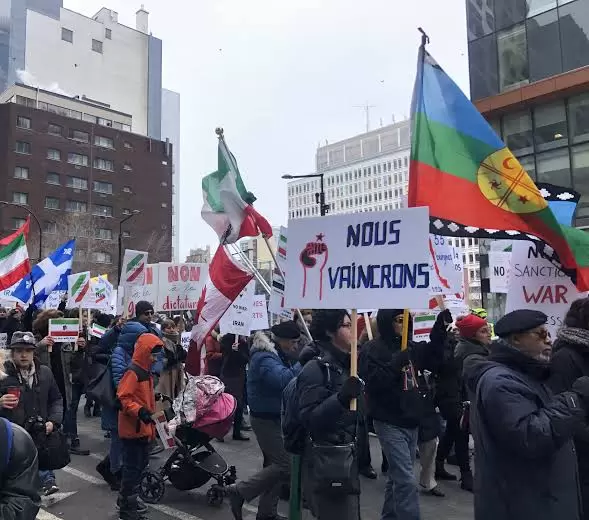

Last updated on September 11th, 2021 at 03:06 pm
The Islamic State’s June 7 coordinated assault on Iran’s Majles-e Shoraye Eslami (Islamic Consultative Assembly), also referred to as Iran’s Parliament, and the mausoleum of the Ayatollah Rohollah Khomeini, the Islamic Republic’s founder, in Tehran, which left at least 17 dead and over 50 others injured, was the Islamic State’s first-ever attack on Iranian soil. It came on the heels of its widely touted video release, “Persia, Between Yesterday and Today,” which was published in March by the media wing of its Iraq-based Wilayat Diyala (Diyala Province) faction. The 36-minute-long production was the Islamic State’s first-ever Persian-language feature. The video, which is subtitled in Arabic, featured the testimonies of alleged Iranian members of the Islamic State and appealed to Iran’s Sunni religious minority to rise up and topple the Islamic Republic.
The attacks seem to have signaled a natural outgrowth of the Islamic State’s increasingly threatening rhetoric toward Iran. They also appear to be a culmination of determined efforts by the Islamic State to attack Iran on its soil. Iran has claimed to have detected plots hatched by the Islamic State in Syria and thwarted plots by groups sympathetic to it within its borders in recent years. For example, Iran’s Intelligence Minister Mahmoud Alavi claimed in May 2015 that Iranian intelligence had foiled separate plots involving potential bombings in the northeastern city of Mashhad, the central city of Qom, and another plot involving a possible use of an undisclosed poison in Tehran. Iranian authorities claimed in June 2016 to have disrupted what they called one of the “biggest” terrorist plots ever planned to target Tehran.
The attacks occurred amid Iran’s increasingly expansive role in Syria in support of the Assad regime, which has enflamed regional tensions, particularly between the Sunni Arab monarchies led by Saudi Arabia on the one side and Iran on the other. Iran’s entry into the Syrian conflict has also enflamed hardline salafi and other strains of Sunni Islamist opinion toward Iran. Amid this backdrop, and at a time when its control of territory in Syria and Iraq has diminished considerably, the Islamic State leadership will see its successful strike against Iran as a propaganda coup. It may prove useful in its fundraising and recruitment efforts as the group transitions toward a strategy of survival and regeneration and intensifies its campaign of local and international terrorism.
The Islamic State’s loathing of Iran and the community of Shi`a believers worldwide is a central tenet of its extremist worldview and a frequent theme of its sectarian-tinged discourse. Its brazen targeting of the Iranian capital signaled a notable escalation in its campaign of global terrorism, even as it continues to endure battlefield setbacks in Syria and Iraq as a result of the efforts of competing enemy forces that include Iran, Iranian allies such as Syria and Iraq, and Iranian-backed Shi`a militias. The Islamic State’s recruitment of Iranians—the purported assailants are reported to have been native Iranian Sunnis of Kurdish extraction who are said to have fought with the Islamic State in Syria and Iraq—and its ability to evade Iran’s pervasive domestic security apparatus is likewise reflective of its operational resilience.
This article looks at the impetus behind the Islamic State’s targeting of Iranian territory. It outlines what is known about the June 7, 2017, attacks and considers the ideological, operational, and geopolitical factors underlying the Islamic State’s strategy. It also examines the timing of its decision to direct its sights and attention toward Iran as well as the social, political, and cultural disposition of Iran’s Sunni minority community and the extent of its receptiveness to the Islamic State’s narrative.
Canadian companies have expanded their presence as major African mining stakeholders and invested more than $37 billion. Africa holds the…
The South African government wants people to plant one million trees across the nation within a single day on September…
The government's statistics regulator showed that South African inflation stayed at 3.2% during February and rose below the projected 3.3%.…
Keywords: Cape Town, African Energy Chamber, Africa, The 2025 African Energy Week (AEW) will host the top energy leaders from…
Recent research shows that Professor Abdessamad Faik believes Africa is at an important energy choice point as renewable-powered hydrogen allows…
The United States plans to shut down its Johannesburg consulate after Sandton Drive gets renamed to Leila Khaled Drive even…
This website uses cookies.